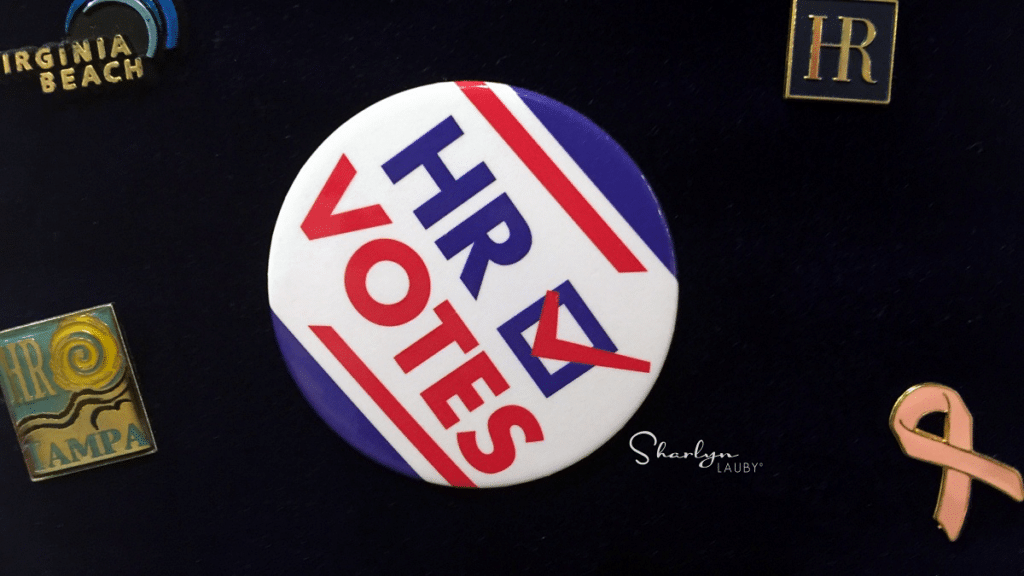Estimated reading time: 4 minutes
There was an article in The New York Times Dealbook newsletter recently taking about support for an organization called Civic Alliance. It’s a nonpartisan coalition of businesses that have made a pledge to encourage employees and consumers to engage together in civic life, specifically elections. Some of the businesses that have taken the pledge include Airbnb, Amazon, Capital One, Deloitte, Facebook, Intel, LinkedIn, SAP, Target, and Verizon.
In the United States, there’s a midterm election being held on Tuesday, November 8, 2022. All 435 seats in the House of Representatives and 35 of the 100 seats in the Senate will be contested. 39 state and territorial gubernatorial, along with numerous other state and local elections will be contested. I’m talking about elections and voting today for two reasons:
First, organizations need to be aware of the laws in their state about voting. The Society for Human Resource Management (SHRM) has an Express Request on State Laws and Time Off for Voting. If your organization doesn’t have a policy in place regarding voting leave, SHRM also has a sample policy that you can use to draft one. Employees want to know this information so they can make plans to vote. Companies do not want to be accused of repressing an employee’s right to vote. Let employees know the policy – and let them know early.
And that leads to my second point. Please go vote. Find time to get educated about the issues that are important to you and go vote. I do not spend a lot of time here on HR Bartender talking about politics, but I do believe participating in voting is important.
Learning about voting and the issues being debated takes time, so I thought it would be good to share some resources now. Consider building some time into your schedule now versus waiting until the last minute. I know that if I wait until right before election day, trying to learn about all the candidates and their stance on the issues becomes quite daunting.
There’s been a lot of talk about voting rights over the past few years. Before the last election, I decided to get myself educated and read a couple of books on the topic. Ben Sheehan’s “OMG WTF Does the Constitution Actually Say?: A Non-Boring Guide to How Our Democracy is Supposed to Work” is a great way to digest our founding document. The book not only shares the actual wording from the Constitution, but it offers an easy to digest interpretation. I also read Kim Wehle’s “What You Need to Know About Voting and Why”. Wehle is a law professor and legal analyst, so the content is a bit heavier, but it is a reminder that the right to vote is important and not to be taken for granted.
Many of the issues being debated in Congress are workplace issues. The outcome of midterm elections could have an impact on employers and employees. If you’re looking for a place to start your research on some of the legislation related to work, don’t forget that SHRM has an advocacy page that shares public policy issues.
In addition to being educated on workplace issues, another aspect to election engagement is getting informed on social issues. Sadly, misinformation and disinformation are still prevalent. I’ve written before about media literacy being a business competency and knowing how to navigate digital information. It’s a good reminder to double check your sources as you’re forming opinions. I know I will be.
I’d like to believe we can all agree that voting is important, regardless of our views. Encouraging people to vote makes sense. People need to participate in the process. That means having policies and practices in place that encourage election engagement.
Image captured by Sharlyn Lauby at the SHRM Annual Conference in Washington, DC
The post Organizations Should Support Election Engagement appeared first on hr bartender.


0 Commentaires